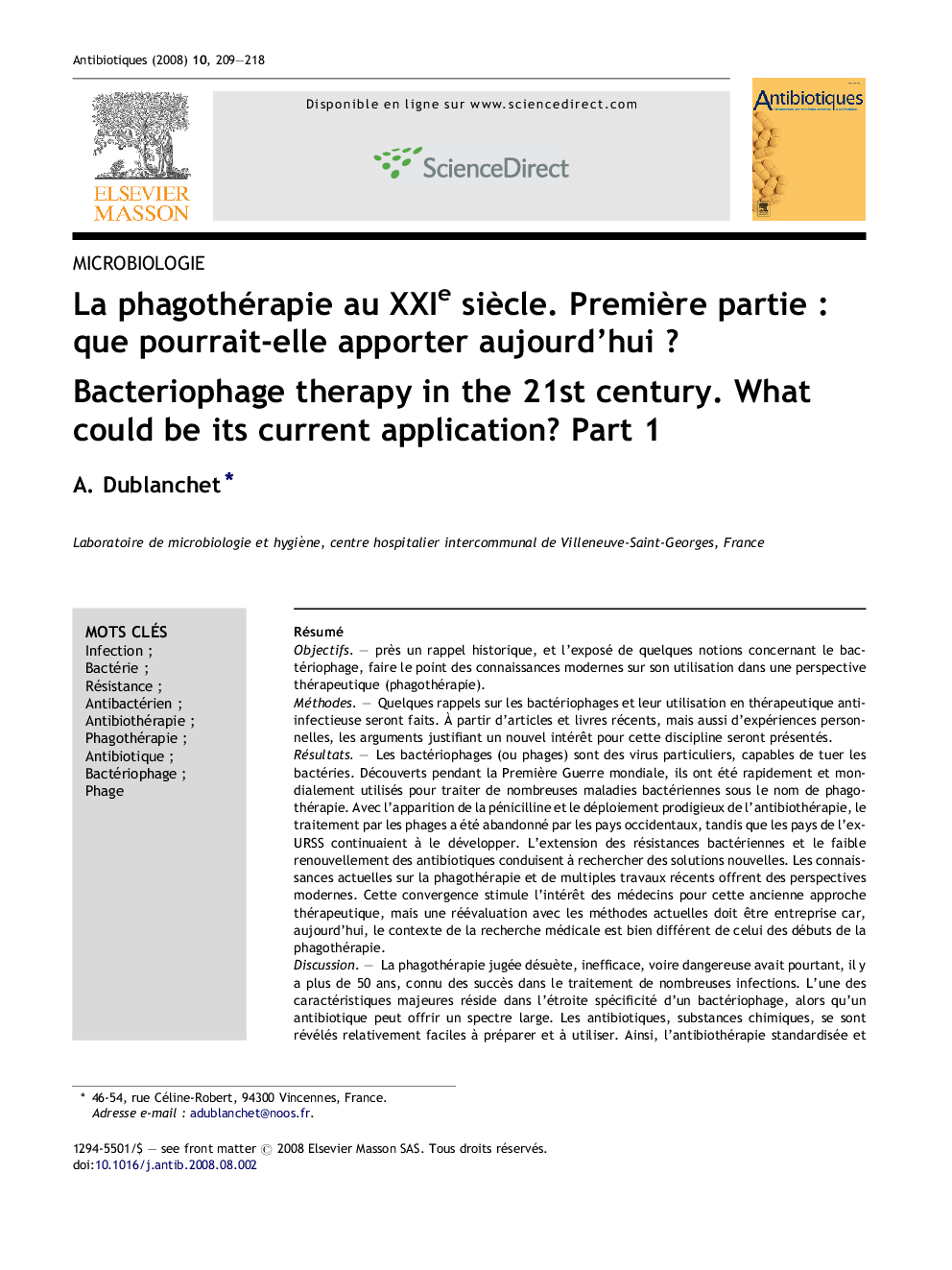| Article ID | Journal | Published Year | Pages | File Type |
|---|---|---|---|---|
| 3396069 | Antibiotiques | 2008 | 10 Pages |
Abstract
As phagotherapy considered for long as nonefficacious, even somewhat dangerous, it had, however, demonstrated success in the treatment of infectious diseases. One characteristic playing a negative role in the development of phagotherapy is its strict specificity, compared to antibiotics, which may have a large anti-infective spectrum. Otherwise antibiotics, which are chemical drugs, relatively easy to be produced, have contributed to the decline of phagotherapy. Since the 1980s, the development of new mechanisms of resistance has resulted in a diminished research for new molecules in pharmaceutical industry. Thanks to the opening borders with Soviet Union and allied countries, Western countries have shown a renewed interest in a forgotten therapeutic method. Today experimental models using precise experimental protocols have produced positive results in animals. To be able to include phagotherapy in man, clinical studies, based on modern protocols, are requested and results need to be discussed. Official committees dealing with drugs can establish obstacles when data are compared to traditional treatments. If phagotherapy is approved, however, should they be considered as usual treatments, particularly if genetically modified phages become available and which consequences can be expected?
Related Topics
Health Sciences
Medicine and Dentistry
Infectious Diseases
Authors
A. Dublanchet,
